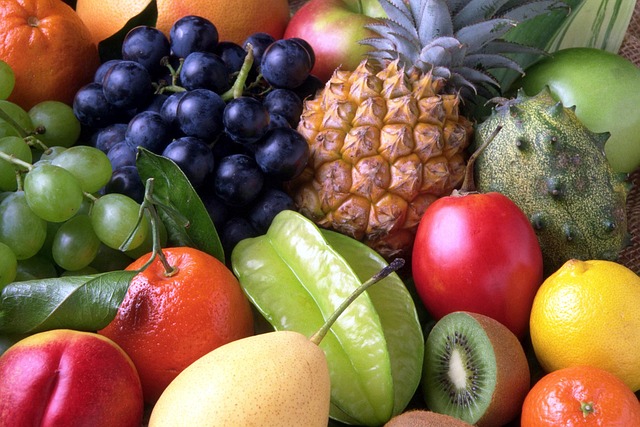Eating a Variety of Foods 5: The Secret to Better Health
Introduction
When it comes to nutrition, the phrase “everything in moderation” is often used. But what if the real secret to better health lies in variety rather than just moderation? A diverse diet filled with a wide range of foods ensures that you receive all the essential nutrients, vitamins, and minerals your body needs. In this article, we’ll explore why eating a variety of foods is crucial for overall health and how you can incorporate more diversity into your daily meals. (Secret to Better Health)
Why Variety Matters in Your Diet
1. Ensures a Balance of Nutrients
Each food group provides different essential nutrients. For example:
- Fruits and vegetables are rich in vitamins, minerals, and fiber.
- Whole grains supply complex carbohydrates and B vitamins.
- Proteins (meat, fish, beans, nuts) offer amino acids necessary for muscle growth and repair.
- Dairy products provide calcium and vitamin D for bone health. By incorporating a variety of these foods, you ensure your body gets all the nutrients it needs. (Secret to Better Health)
2. Boosts Gut Health
A diverse diet supports a healthy gut microbiome. Different foods provide different types of fiber and beneficial bacteria, promoting better digestion and reducing inflammation. Fermented foods like yogurt, kimchi, and sauerkraut introduce good bacteria, while fiber-rich foods like whole grains and legumes feed these bacteria. (Secret to Better Health)
3. Reduces the Risk of Chronic Diseases
Consuming a variety of foods lowers the risk of developing chronic diseases such as heart disease, diabetes, and obesity. Different nutrients work together to keep your body functioning optimally. For instance, antioxidants in fruits and vegetables help fight oxidative stress, while omega-3 fatty acids in fish reduce inflammation. (Secret to Better Health)
4. Prevents Nutrient Deficiencies
Relying on a limited diet increases the risk of nutrient deficiencies. For example, if you eat mostly processed foods, you may lack essential vitamins like C, D, and E, leading to health issues such as weakened immunity and poor skin health. (Secret to Better Health)
5. Encourages Healthy Eating Habits
Eating a variety of foods makes meals more enjoyable and prevents boredom. It encourages a balanced approach to eating rather than restrictive dieting, which often leads to cravings and overeating. (Secret to Better Health)
How to Add More Variety to Your Diet
1. Eat the Rainbow
Different colored fruits and vegetables provide different nutrients. Aim to include red, green, yellow, and purple produce in your meals to maximize nutrient intake.
2. Experiment with New Foods
Try incorporating foods you don’t usually eat. This could mean switching from white rice to quinoa or trying exotic fruits like dragon fruit or passion fruit. (Secret to Better Health)
3. Mix Up Protein Sources
Instead of sticking to just chicken or beef, include plant-based proteins like lentils, chickpeas, and tofu. Fish and eggs are also excellent protein options.
4. Choose Whole Grains
Instead of refined grains, opt for whole grains like brown rice, whole wheat, oats, barley, and bulgur. These provide more fiber and nutrients.
5. Incorporate Different Cooking Methods
Sometimes, how food is prepared affects its nutrient content. Try steaming, roasting, or stir-frying vegetables instead of always boiling them.
Common Myths About a Varied Diet
Myth 1: Eating a Variety of Foods is Expensive (Secret to Better Health)
While some exotic foods may be pricey, many nutrient-rich foods, like beans, lentils, and seasonal fruits, are budget-friendly.
Myth 2: Too Many Different Foods Can Upset Digestion
Unless you have specific food intolerances, eating a variety of foods helps improve digestion by diversifying gut bacteria.
Myth 3: Sticking to a Few Healthy Foods is Enough
No single food contains all the essential nutrients your body needs. A limited diet can lead to deficiencies over time.
Conclusion
Eating a variety of foods is not just about making meals more interesting—it’s a fundamental strategy for achieving better health. A diverse diet ensures that your body gets a wide range of nutrients, supports gut health, reduces the risk of chronic diseases, and helps maintain a balanced and enjoyable approach to eating. Start small by incorporating new foods into your meals and gradually expand your diet to include different flavors, textures, and nutrient sources. Your body will thank you!
How many different foods should I eat daily?
Aim for at least 30 different plant-based foods per week for optimal gut health.
Can I get all my nutrients from supplements instead of food?
While supplements can help, real foods provide fiber, antioxidants, and other beneficial compounds that pills can’t replace
What are some easy ways to add variety to my diet?
Try adding different spices, swapping ingredients in recipes, and including seasonal fruits and vegetables.
Does a diverse diet help with weight management?
Yes! A varied diet prevents boredom and reduces cravings, making it easier to maintain a healthy weight.
How can picky eaters introduce more variety into their meals?
Start with small changes, like adding one new vegetable to a familiar dish or trying new flavors gradually.




Post Comment